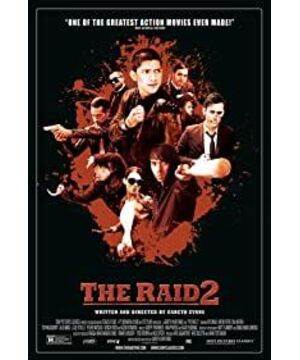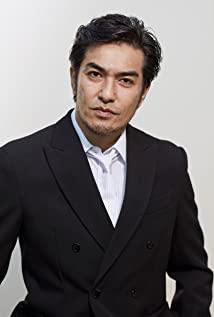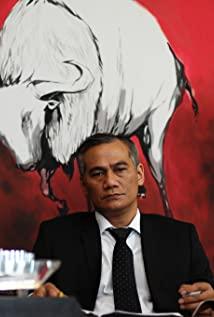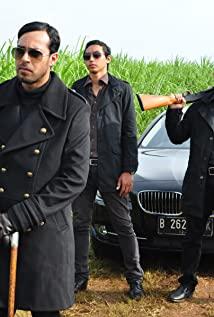Of course, Evans must have thought of this, not to mention that after the first small test, he is bound to inject greater ambitions into the second, so we really saw a sequel that is different from the previous one. Compared with the lively and hot part of the first part, the biggest difference of the second part is the dramatic expansion of the plot, and the extent of expansion is geometric, almost creating a building from the ruins. But unfortunately, this "building" is just a rough house with only skeleton and no interior.
For action movies, although martial arts (action elements) are always red flowers, they also need to be set off with a certain quality of literary drama to become more exciting, especially martial arts such as Muay Thai and Bancasila that do not have the diversity of Chinese Kung Fu. Even more so, otherwise it's easy to get bored with that trick, Tony Jaa is a good example. Therefore, Evans's direction of increasing the proportion of literary drama should be correct, but the problem is that his literary drama only stays on simple imitation.
First of all, from the joining of three Japanese actors, Kenichi Endo, Ryuhei Matsuda and Ikki Kitamura, it can be seen that Evans has the meaning of borrowing from East Asian gangster films, but this kind of "mantis catching cicadas, the oriole is behind", We have seen the gangster play of "The snipe and the clam fight, and the fisherman wins", and we have already seen a lot of discounts in terms of creativity. Secondly, from the perspective of the content of literary dramas, there is nothing good to say, just learning a little bit of skin. The dialogue is mediocre, lacks logic, and the dramatic conflict is poorly designed. These fatal flaws make the whole story rather pale, and it is difficult to give people an aftertaste. It is more related to the excellent Hong Kong. Japanese and Korean gangster films are a far cry.
In martial arts, Evans also played some tricks. If the first part emphasizes more realistic effects and a sense of speed, then in the second part, it pays more attention to the sense of rhythm, and deliberately adds many exaggerated stylized settings (including scenes and characters). For example, the men in sweaters and the women in sunglasses, their weapons—baseball bats and hammers—are unconventional weapons. If you use martial arts novels as a reference, they can correspond to Qimen weapons such as blood droplets, sun, moon and five elements, and play a spectacle. The role of symbolization and symbolization. What's more, Evans also arranged a fighting scene in the snow. Based on the premise that the background of the story is in Jakarta, such a setting is indeed a bit pretentious. "Impact? Fortunately, in the last 40 minutes, the film returned to a relatively normal rhythm, and even the fierce battle was very solid from design to editing. If you have to be picky, maybe the kitchen battle as the final battle is a little less shocking than the first one.
A little digression here. At present, the field of Asian action films (mainly concentrated in East and Southeast Asia) is in an era of alternating old and new forces. The old and powerful China (including Hong Kong) is not connected, the sun is setting, and there are few people seeking change and breakthroughs, while South Korea relies on a large number of artists And the overall strength of the action team has become a rapidly rising emerging force, getting rid of the predicament of simply imitating Hong Kong-style kung fu movies in the early years. From this point of view, although the "raid" series is not a classic, it at least shows the atmosphere of innovation and change in Indonesian films, which is worth learning. Kung Fu films were once the pride of the Chinese film industry. How to learn from each other's strengths and make breakthroughs in such a situation is something that filmmakers should think about.
View more about The Raid 2 reviews











